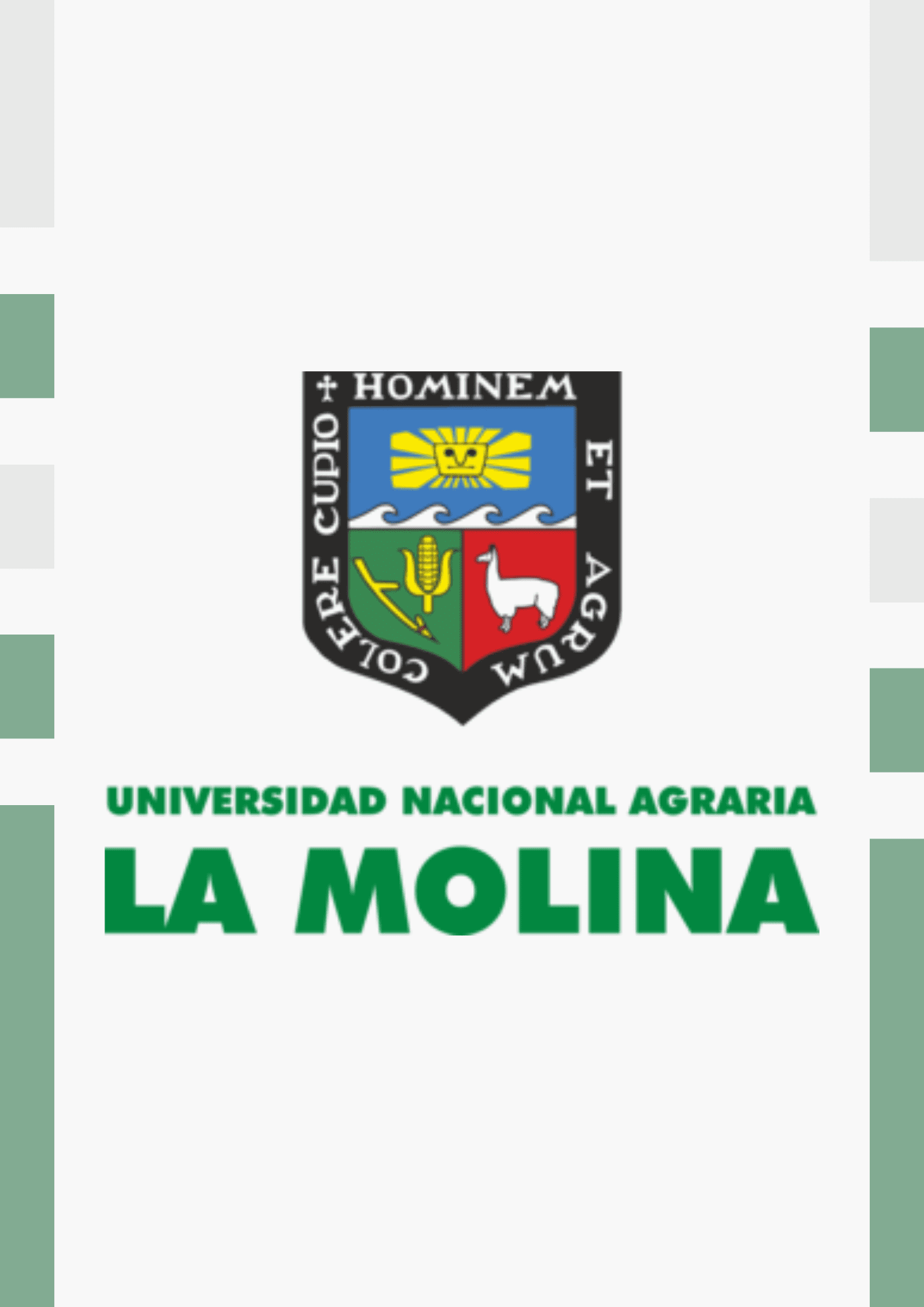Influencia del consumo del extracto etanólico de hojas de guanábana (Annona muricata L.) sobre el perfil lipídico en ratas hiperlipidémicas
| dc.contributor.advisor | Villanueva Espinoza, María Elena | |
| dc.contributor.advisor | Rodriguez Quispe, Jorge Louis | |
| dc.contributor.author | Ayala Huamán, Karen Verónica | |
| dc.date.accessioned | 2024-02-19T22:43:32Z | |
| dc.date.available | 2024-02-19T22:43:32Z | |
| dc.date.issued | 2024 | |
| dc.description | Universidad Nacional Agraria La Molina. Escuela de Posgrado. Maestría en Nutrición | |
| dc.description.abstract | Las enfermedades cardiovasculares son la principal causa de muerte en todo el mundo y están relacionadas directamente con hiperlipidemia. Se ha reportado que plantas con alto contenido de flavonoides, pueden ser utilizadas para la prevención y tratamiento de hiperlipidemia y aterosclerosis, por su actividad antioxidante. Estos compuestos bioactivos presentes en las hojas de guanábana podrían tener un impacto importante en el tratamiento de la hiperlipidemia. Así, el objetivo de la presente investigación fue evaluar el efecto del extracto etanólico de hojas de guanábana (Annona muricata L.) sobre el perfil lipídico en Rattus norvergicus con hiperlipidemia inducida experimentalmente. Para ello, se distribuyeron aleatoriamente 35 ratas en cinco tratamientos, con excepción del control negativo (T0), los cuatro tratamientos restantes fueron inducidos a hiperlipidemia con glutamato monosódico (GMS) 8mg/ g de peso y recibieron los siguientes tratamientos, (T1) control positivo; (T2) y (T3) dos dosis diferentes del extracto etanólico de hojas de guanábana 250 mg/Kg/día y 500 mg/Kg/día respectivamente, y (T4) atorvastatina 1.1 mg/Kg/día como control farmacológico. Durante el ensayo se registró peso vivo inicial y final, ganancia de peso y consumo de alimento. Luego de 30 días, se procedió a medir el perfil lipídico y los resultados obtenidos fueron sometidos a ANOVA bajo un DCA y la prueba de comparación de medias se calculó mediante Duncan, usando el software estadístico SAS 9.0. Los resultados mostraron que los tratamientos influyeron (p<0.05) los niveles de COL, TG, c-VLDL, c LDL y el índice de riesgo coronario e incrementó niveles de c-HDL, siendo la dosis de 500 mg/Kg que presentó mayor efecto en comparación con el fármaco comercial evaluado. En conclusión, el extracto etanólico de hojas de guanábana presenta efecto hipolipemiante en ratas con hiperlipidemia inducida experimentalmente. | |
| dc.description.abstract | Cardiovascular diseases are the leading cause of death worldwide and are directly related to hyperlipidemia. It has been reported that plants with a high content of flavonoids can be used for the prevention and treatment of hyperlipidemia and atherosclerosis, due to their antioxidant activity. These bioactive compounds into soursop leaves could have an important impact in the treatment of hyperlipidemia. Thus, the objective of this research was to determine if the ethanolic extract of soursop leaves (Annona muricata L.) has an effect on the lipid profile in Rattus norvergicus with experimentally induced hyperlipidemia. For this, 35 rats were randomly distributed into five treatments. With the exception of the negative control (T0), the other four treatments were induced to hyperlipidemia with 8mg/g of weight monosodium glutamate (MSG) and received the following treatments, (T1) positive control; (T2) and (T3) two different doses of the ethanolic extract of soursop leaves 250 mg/Kg/day and 500 mg/Kg/day respectively and (T4) atorvastatin 1.1 mg/Kg/day as pharmacological control. During the trial, initial and final live weight, weight gain and feed intake were recorded. After 30 days, the lipid profile was measured and the results obtained were subjected to ANOVA under a DCA and the comparison of means was calculated through Duncan´s test, using the SAS 9.0 statistical software. The results showed that final live weight, weight gain and feed intake were influenced by the dietary treatments. Also, the ethanolic extract of soursop leaves significantly decreased (p<0.05) the levels of COL, TG, c-VLDL, c-LDL, coronary risk index and increased the levels of c-HDL, being the dose of 500 mg/Kg the one that presented the greatest effect on comparison to the commercial drug evaluated. In conclusion, the ethanolic extract of soursop leaves has a hypolipidemic effect in rats with experimentally induced hyperlipidemia.. | |
| dc.format | application/pdf | |
| dc.identifier.uri | https://hdl.handle.net/20.500.12996/6278 | |
| dc.language.iso | spa | |
| dc.publisher | Universidad Nacional Agraria La Molina | |
| dc.publisher.country | PE | |
| dc.rights | info:eu-repo/semantics/openAccess | |
| dc.rights.uri | https://creativecommons.org/licenses/by-nc-nd/4.0/ | |
| dc.subject | Hiperlipidemia | |
| dc.subject.ocde | https://purl.org/pe-repo/ocde/ford#3.03.04 | |
| dc.title | Influencia del consumo del extracto etanólico de hojas de guanábana (Annona muricata L.) sobre el perfil lipídico en ratas hiperlipidémicas | |
| dc.type | info:eu-repo/semantics/masterThesis | |
| dc.type.version | info:eu-repo/semantics/publishedVersion | |
| renati.advisor.dni | 07594917 | |
| renati.advisor.orcid | https://orcid.org/0000-0001-7900-6664 | |
| renati.author.dni | 71418147 | |
| renati.discipline | 917137 | |
| renati.juror | Vílchez Perales, Niceas Carlos | |
| renati.juror | Echevarria Rojas, Mariano Gonzalo | |
| renati.juror | Bernuy Osorio, Nataly Dolores | |
| renati.level | https://purl.org/pe-repo/renati/level#maestro | |
| renati.type | https://purl.org/pe-repo/renati/type#tesis | |
| thesis.degree.discipline | Nutrición | |
| thesis.degree.grantor | Universidad Nacional Agraria La Molina. Escuela de Posgrado | |
| thesis.degree.name | Magister Scientiae - Nutrición |
Files
Original bundle
1 - 3 of 3
Loading...
- Name:
- ayala-huaman-karen-veronica.pdf
- Size:
- 5.57 MB
- Format:
- Adobe Portable Document Format
- Description:
- Texto completo

- Name:
- 4. Turnitin Karen Ayala firmado.pdf
- Size:
- 15.16 MB
- Format:
- Adobe Portable Document Format
- Description:
- Informe originalidad

- Name:
- Formato de REPOSITORIO.pdf
- Size:
- 236.4 KB
- Format:
- Adobe Portable Document Format
- Description:
- Autorizacion
License bundle
1 - 1 of 1

- Name:
- license.txt
- Size:
- 1.63 KB
- Format:
- Item-specific license agreed upon to submission
- Description:

